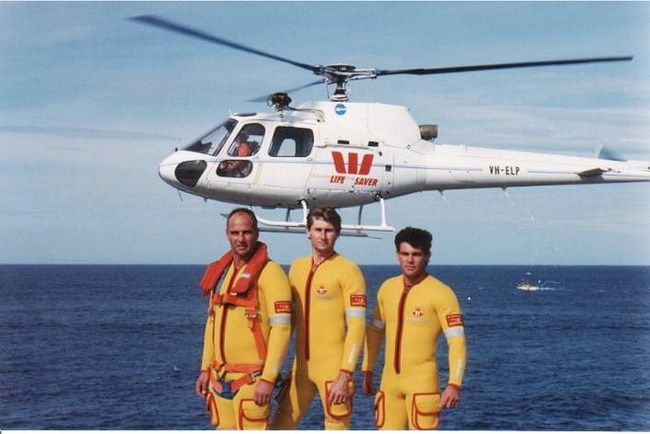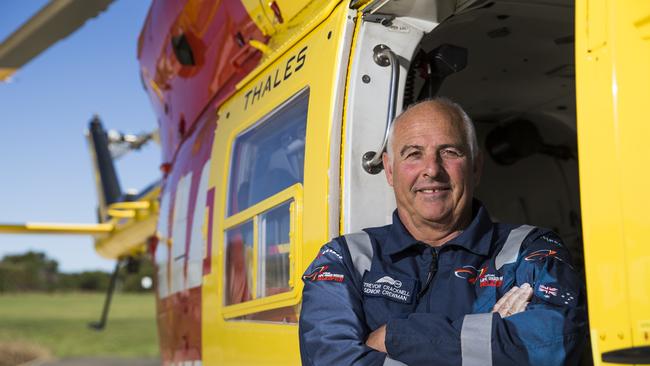Trevor Cracknell: Maroubra man and Westpac rescue crewmen reflects on time with service
After a prodigious swimming career representing Australia at the Commonwealth Games, Trevor Cracknell turned his talents into helping save more than 1000 lives

Southern Courier
Don't miss out on the headlines from Southern Courier. Followed categories will be added to My News.
After a prodigious swimming career representing Australia at the Commonwealth Games, Trevor Cracknell turned his talents into helping save more than 1000 lives.
Before joining the Westpac Rescue Helicopter Service as a 27-year-old in 1986, the Australian swimming champion was a lifeguard on the famous Maroubra Beach.
It’s where the service launched 50 years ago and now Cracknell is a senior crewmen and rescue diver with no plans of finishing up anytime soon.
He said he used to see rescue helicopters “going up and down the coast” as a kid and after a conversation with a friend, he researched a position with the Westpac service and applied for the job.
“It’s the best job in the world,” Mr Cracknell said. “I don’t think there’s been a morning I haven’t wanted to go to work in 37 years.”

Working between two bases, one in Sydney and the other in Moruya, Mr Cracknell said there had been many crazy rescue experiences.
One of which was on a Saturday afternoon at Bate Bay in Cronulla.
Cracknell said there was a young boy surfing at Cronulla Point and after a southerly front of about “50 to 60 knots” came through he was washed up further north towards Green Hills.
As the helicopter was “getting thrown around” and the boy was “exhausted” while holding up his board, the crew decided it was safe to battle the “violent” conditions and head to shore, rather than being brought to the aircraft.
It was “unbelievable” for Mr Cracknell who in 2018 was nominated for a Pride of Australia bravery medal.
“That was one of the best [rescues] … just for the fact that if the aircraft wasn’t there … he could have perished that young kid,” Mr Cracknell said.
But, the job is never easy. Mr Cracknell said his crews had performed “night winches” with fisherman falling off rocks, rescuing people after a boat had overturned and fighting against the light was a “challenge on its own”.
Having grown up in the eastern suburbs, Mr Cracknell knows better than most about the dangers of its coastline, saying “there’s more fisherman washed off in the Sydney basin than anywhere around Australia”.
“You get 10 or 12 a year [there] … that’s really unacceptable … it’s terrible,” he said.
With Randwick Council introducing lifeguards at one of its most dangerous beaches – Little Bay – Mr Cracknell applauded the decision, saying “preventive action” was important in saving lives.
While “getting towards the end” of his career, Cracknell said until his fitness deteriorates he would continue serving for Westpac.





